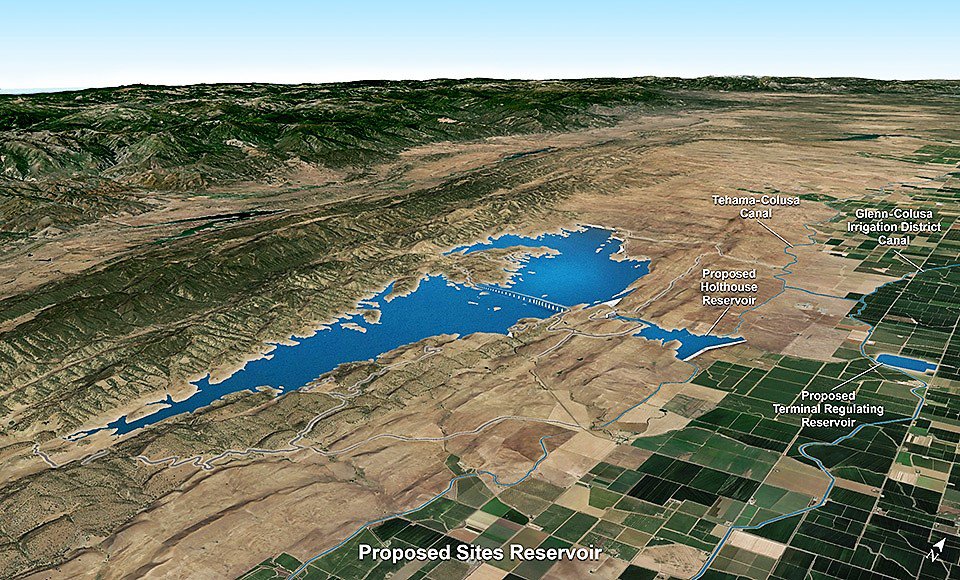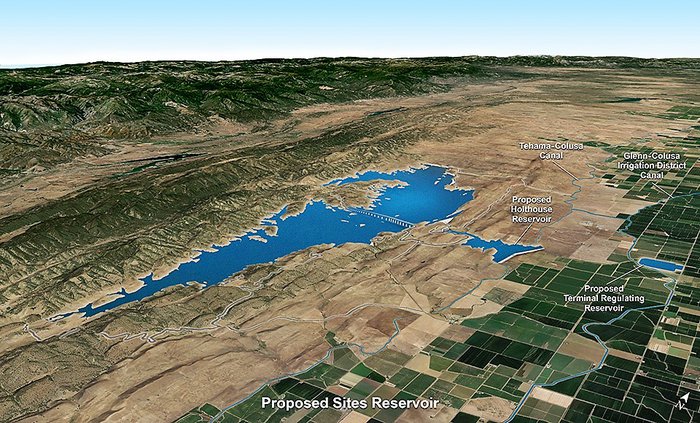Lame duck congressman Jeff Denham (R-Turlock) is seeing his efforts pay off in bringing Washington D.C. Secretaries of the Interior and of the Army to Manteca and the Central Valley for them to see first-hand the dire water storage needs for farms and cities alike, resulting in a $449 million construction grant on the heels of a multi-million-dollar California state grant last summer.
He was asked why he is still so adamant to see the construction of the Sites Reservoir Project that will bring 280 billion gallons of water — enough to serve 6.3 million Californians for one year — specifically bringing more water storage to the Central Valley especially for dry years.
“I made a promise to the voters and we are living up to that,” Denham said. “Water is our future and I am always going to continue to work for that.”
The Sites Project is being situated on the west side of the Sacramento Valley, some 10 miles west of the rural town of Maxwell in historic Colusa County. The region has long been considered ideal for off-stream water storage since the 1980s in a proposal that has been widely supported by area community leaders, residents and state water managers and agencies from the Bay Area to Southern California.
U.S. Representatives David Valadao, Jim Costa and John Garamendi will stand with Denham this morning for the formal announcement of the Sites Project Construction grant in Maxwell along with Secretary of Agriculture Sonny Perdue, Secretary of the Interior Ryan Zinke and Assistant Secretary of the Army for Civil Works, Rickey “RD” James at the future site of the 858,000-acre-foot reservoir.
They will be hosting a round table discussion with California water producers and regional water experts following the announcement followed by a tour of the Strain ranches in nearby Arbuckle.
As a direct result of Denham’s efforts, President Trump signed a presidential memorandum in October to address hydroelectric relicensing, similar to what is happening at Don Pedro and requiring agencies to consider plans like the Tuolumne River Management Plan developed by the Modesto and Turlock Irrigation Districts “to avoid catastrophic water grabs at the hands of the Sacramento bureaucrats.”
Denham’s New Water Act was signed into law in late October as part of the America’s Water Infrastructure Act of 2018 to provide financing for water projects throughout the western United States. That legislation provides financing for water projects throughout the western U.S. including new reservoirs, below ground storage projects, recycling and desalination projects.
The law is also in support of large projects like enlargement of Shasta Dam, construction Sites Reservoir and Temperance Flat dam and the expansion of Los Vaqueros Reservoir. Additionally, Denham passed an amendment through the U.S. House of Representatives earlier this year to stop Sacramento’s planned water grab by prohibiting federal agencies from participating in the state’s plan to deplete the federally owned New Melones Reservoir that provides water to the Central Valley.
California has two main sources of water with surface water coming from rivers, lakes and streams and groundwater coming from underground aquifers. Other sources include desalination and recycled water, providing a smaller amount for water needs locally.
The state’s primary surface water system is comprised of the State Water Project and the federal Central Valley Project. Surface water is captured and stored in reservoirs and later released downstream to meet water supply, flood control, water quality and environmental needs.
The California Water Commission voted July 1 to award the Sites Project $816 million in state funding to provide environmental benefits for refuge water supplies, Delta Smelt, recreational opportunities and localized flood control. In addition, the Water Commission agreed to provide $40.8 million in early funding to assist in completing he necessary environmental analyses and obtaining required permits.
“Sites is a smart and long overdue investment for California,” said Sites Project Authority Chairman Fritz Durst. Funding from the state unlocked the millions more available in federal funding, he added.
To contact Glenn Kahl, email gkahl@mantecabulletin.com.








